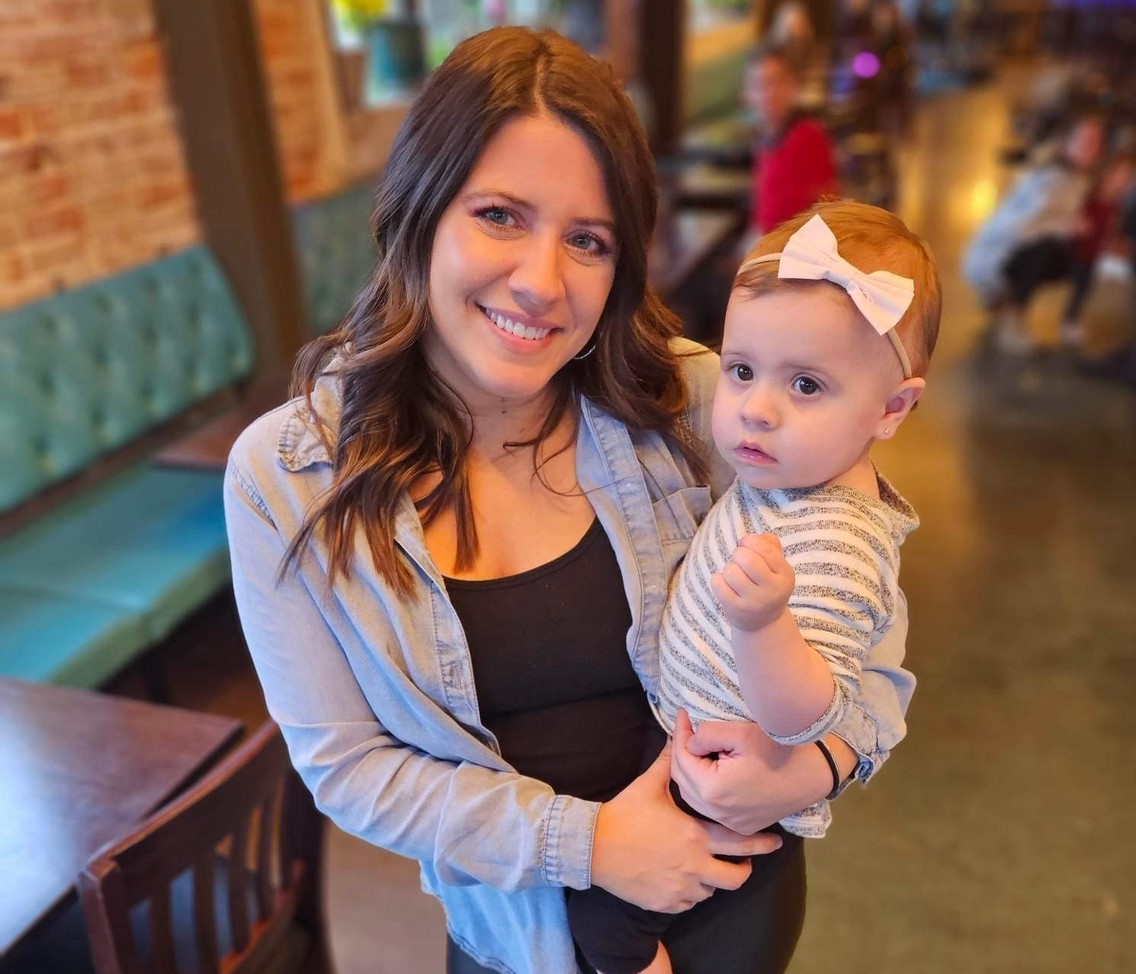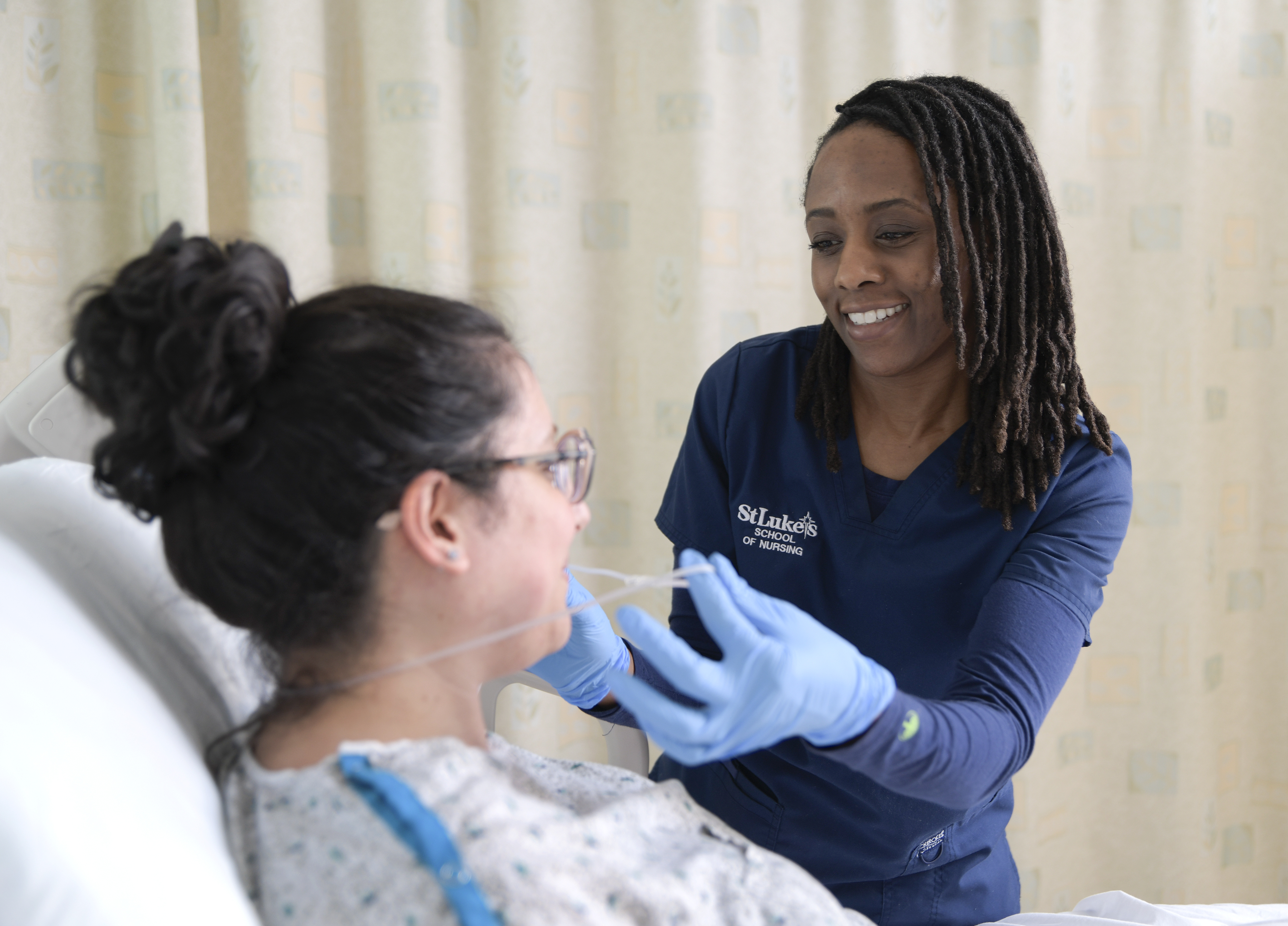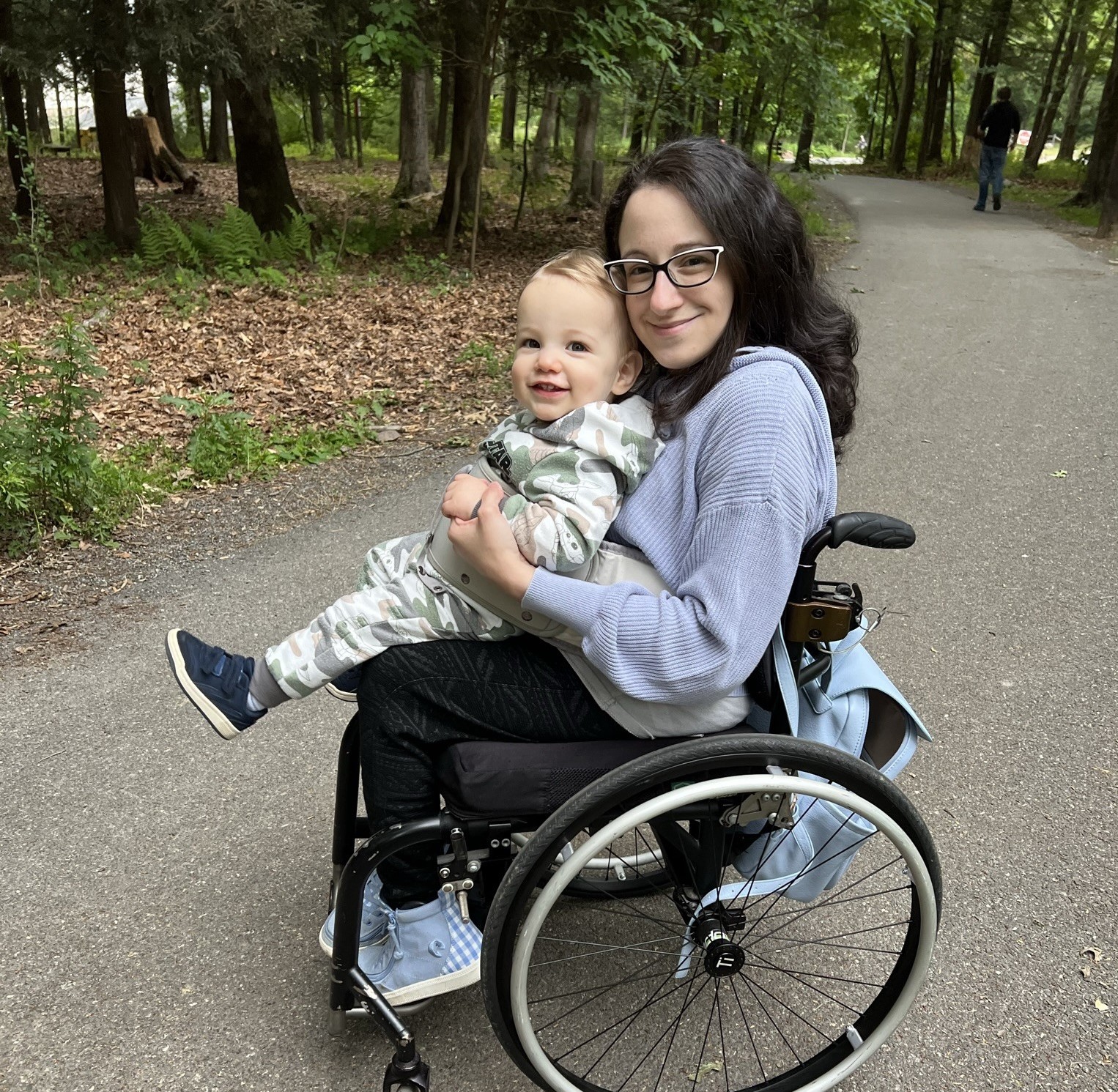News

JoAnn Farley looks holds her daughter Skylar.
JoAnn Farley looks down fondly with a warm smile in her face and her heart every time she holds her young daughter Skylar.
“My daughter is my miracle baby,” she said of her two-year-old. “She’s always been happy since the day she was born, a breath of fresh air. She was born two years to the day I rang the bell to finish my cancer treatment.”
JoAnn, 36, was diagnosed with colorectal cancer when she was only 30 years old, a rare occurrence for someone so young. Colorectal cancer is the fourth-most diagnosed cancer in the U.S. and the fourth-most cause of cancer deaths.
St. Luke’s is a regional leader in the prevention, diagnosis and treatment of colon cancer with a dedicated, compassionate team of gastroenterologists, surgeons and cancer specialists committed to providing high quality care and advanced treatment options.
“Early detection proved invaluable for JoAnn’s success,” said Chatargy Kaza, MD, her gastroenterologist with St. Luke’s University Health Network. “Everything was taken care of in a very timely fashion so that our St. Luke’s surgeons were able to completely remove the cancer completely, and that’s the most important thing. Colon cancer usually starts as a small tissue growth called a polyp. If these are discovered at a very early stage, they can be removed during a colonoscopy to prevent them from becoming cancerous.
“The recommendation is for people to get their first colonoscopy at age 45,” Dr. Kaza said, “but any symptoms like changes in bowel habits, blood in the stool or abdominal pain need to be evaluated further with a colonoscopy, even at a younger age. This is why it is so important to talk with your doctor about any changes and not ignore symptoms.”
JoAnn, living in New Jersey in 2018, ignored her symptoms before connecting with St. Luke’s and Dr. Kaza while visiting her parents in Bethlehem on Memorial Day weekend. She felt so short of breath and was ready to pass out. She went to the emergency room at St. Luke’s Anderson Campus where routine blood tests showed a hemoglobin level so low that internal bleeding was a possibility. A CT scan showed a concerning thickening in the colon. JoAnn was admitted that day, had the colonoscopy the following day and was discharged.
Dr. Kaza reached out to her the next day and asked her to come into the office to discuss the biopsy results.
“I’m just grateful to Dr. Kaza that he brought me back into the hospital,” she said. “I told him I didn’t have insurance for an office visit. He told me to come back to the GI lab at the hospital. He took me into one of the recovery rooms, and that’s when he told me I had cancer.”
Dr. Kaza comforted her and facilitated a treatment plan.
Within a week, Roderick Quiros, MD, one of St. Luke’s surgical oncologists, performed a left hemicolectomy to remove part of the colon that had cancer. The biopsies came back with a diagnosis of Stage 3C, which meant it was localized and did not spread into other organs.
She began chemotherapy in July. Before the round of chemo, she was asked if she wanted to freeze her eggs because the treatment could cause issues with fertility.
“I told them no,” JoAnn said. “I felt that if I was meant to have kids, I‘d have them.”
After finishing chemo in December and ringing the bell to signal the end of her treatment, both her CT and PET scans were clean, and her bloodwork was normal.
A routine scan six months later showed the presence of a small nodule suspicious for cancer and it was completely removed. The biopsy revealed a recurrence of the original cancer in a different area, making it Stage 4. JoAnn underwent three more months of a different chemotherapy and completed that in March 2020.
JoAnn has been following up with Dr. Kaza for colonoscopies since then, and regularly and follows up with her St. Luke’s oncologist.
Genetic testing showed JoAnn had no tendency for family colon cancer.
If JoAnn had tried to live with her symptoms instead of seeking treatment, she may not have survived. Today, she can hold her daughter, laugh, dance, play, and dream with her.
“I always say her birthday is a very special day for me,” JoAnn said. “It’s not just her birthday. It’s also the day I got to ring the bell.”






















